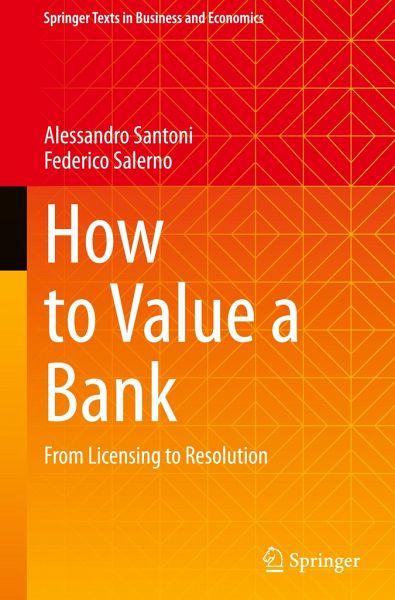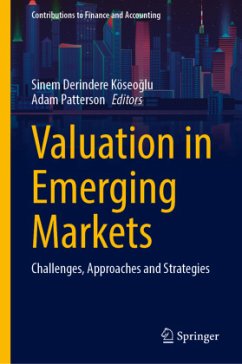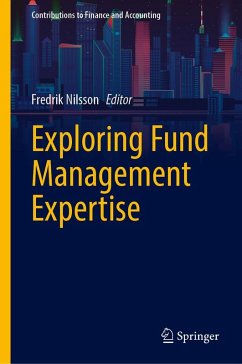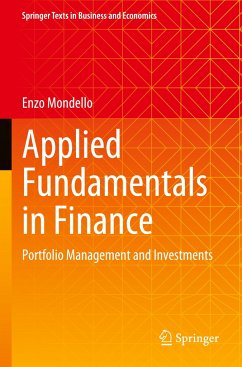
How to Value a Bank
From Licensing to Resolution

PAYBACK Punkte
34 °P sammeln!
This book gives an overview of the most common techniques used by analysts and experts to assess and value banks in all phases of a Bank's life, from licensing to resolution. These include licensing procedures, going concern market valuation techniques, liquidation, and resolution methodologies. The author sheds light on financial institutions' reporting and financial statements and explains how to interpret the data. Special attention is given to the different valuation approaches for financial institutions ranging from the basic PE and PBV methodologies to the more sophisticated ones such Di...
This book gives an overview of the most common techniques used by analysts and experts to assess and value banks in all phases of a Bank's life, from licensing to resolution. These include licensing procedures, going concern market valuation techniques, liquidation, and resolution methodologies. The author sheds light on financial institutions' reporting and financial statements and explains how to interpret the data. Special attention is given to the different valuation approaches for financial institutions ranging from the basic PE and PBV methodologies to the more sophisticated ones such Discount cash flow (DCF), Dividend discount model (DDM), excess return models (EVA), and their variant, the warranted equity value (WEV) method. The authors also illustrate how to build a sum-of-the-parts model (SOTP) and how to treat capital in the process as well as developing a bottom-up approach for the cost of equity. The book provides numerous real-world examples which will hopefullyhelp practitioners build their own MS Excel models. Furthermore, this publication investigates some of the critical aspects of banking M&A and its valuation implications.
This book also takes a deep dive into valuation for Banks in gone concern status, describing the basis for three different types of valuation of Banks in resolution: to inform a decision on whether to put a bank into resolution; to inform the choice of resolution tools and the extent of any bail-in of liabilities; and to determine whether any creditors would have been better off had the bank gone into insolvency. Special attention is given to the valuation of non-performing loans (NPLs) and financial assets focusing on some operational aspects of winding-down a bank's loan and trading book portfolio.
This book also takes a deep dive into valuation for Banks in gone concern status, describing the basis for three different types of valuation of Banks in resolution: to inform a decision on whether to put a bank into resolution; to inform the choice of resolution tools and the extent of any bail-in of liabilities; and to determine whether any creditors would have been better off had the bank gone into insolvency. Special attention is given to the valuation of non-performing loans (NPLs) and financial assets focusing on some operational aspects of winding-down a bank's loan and trading book portfolio.














